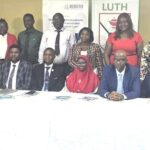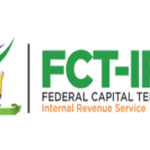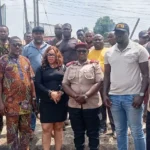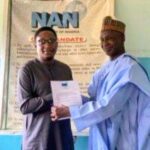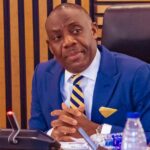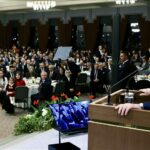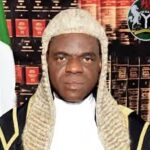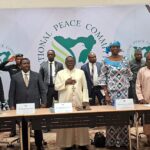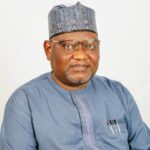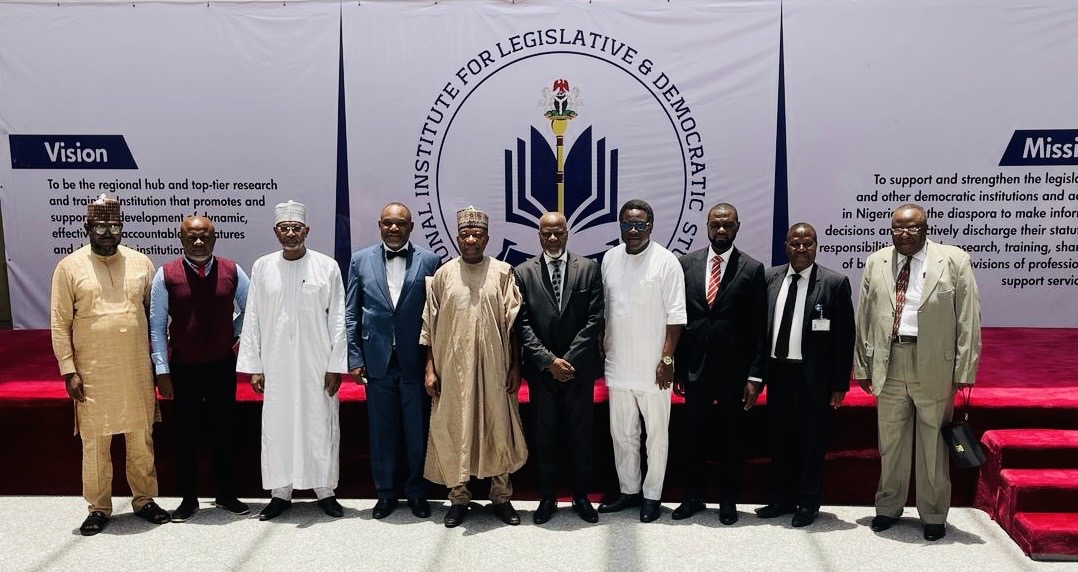By EricJames Ochigbo
Director-General of National Institute for Legislative and Democratic Studies (NILDS), Prof. Abubakar Sulaiman, has advocated for strengthening of democratic institutions to withstand pressure and ensure credible elections in Nigeria.
Sulaiman stated this on Thursday in Abuja at the opening of a national dialogue on electoral reforms in Nigeria.
The News Agency of Nigeria (NAN) reports that the national dialogue had, as its theme: ‘Strengthening Electoral Integrity in Nigeria: Legislative and Institutional Reforms’.
Sulaiman said that as Nigeria continued to navigate the complex terrain of democratic consolidation, electoral reform remained one of the most pressing issues confronting its democracy.
He noted that since the return to democratic rule in 1999, Nigeria had undertaken multiple legal and institutional reforms to improve its electoral system.
The director-general, however, said that each electoral cycle revealed recurring challenges, such as logistical failures, voter suppression, electoral violence, voter apathy, misinformation as well as allegations of manipulations and fraud.
All these, he said, called for bolder, smarter and more comprehensive reforms.
According to him, the credibility of the country’s elections, the transparency of its electoral processes and the inclusivity of its political system are at the core of democratic legitimacy and citizens’ trust.
“Strengthening electoral integrity is not merely a legal or technical exercise, It is a political and moral imperative.
“We must ensure that our laws and institutions do not just exist on paper, but are able to withstand the pressures of electoral competitions and the manipulations of bad actors.
“Furthermore, we must pay closer attention to local government elections which continue to be marred by lack of independence and credibility.
“Any conversation on electoral reform that excludes this tier of government is incomplete.
“NILDS firmly believes that empowering State Independent Electoral Commissions (SIECs) and reviewing state-level electoral laws are fundamental steps toward ensuring that democracy is meaningful and effective at the grassroots,” he said.
Sulaiman said that NILDS, as an institution mandated to provide strategic support to the National Assembly, was deeply invested in contributing to the development and reform of Nigeria’s electoral framework.
He described the policy dialogue as part of a broader commitment to supporting evidence-informed legislation and institutional strengthening.
The director-general said at a time when the National Assembly was considering amendment to the Electoral Act, the dialogue offered a unique opportunity for all stakeholders to actively engage in shaping electoral laws that aligned with Nigeria’s evolving democratic needs.
He pledged that the insights and recommendations generated from the dialogue would be compiled into a report and submitted to relevant committees as contributions to the ongoing electoral reform process.
In his remarks, the Director of Legal Services, Independent National Electoral Commission (INEC), Prof. Mohammed Tenimu, stressed the need for reforms that would address pre and post-election disputes.
Tenimu, a Senior Advocate of Nigeria (NAN), said that the Electoral Act should be amended to give ample time to aggrieved parties to file their petitions and extend the window to amend the petitions, stressing that the current 21 days is grossly inadequate.
He said that petitioners should be allowed to withdraw their cases at any time, especially after an out-of-court settlement without necessarily filing an affidavit.
Tenimu said that political parties should train their agents to keep all copies of forms given to them during the electoral process so as not to waste time mounting pressure on INEC to obtain copies.
Also speaking, Mr Johnson Usman, SAN, said that the current electoral act should be amended to allow any citizen or interested party, except the contestant, to approach the court in a case where a candidate submitted forged documents to INEC.
He said that the practice was allowed under section 29 of the electoral act, 2010 but which had been scrapped in the recent amendments.
Usman said that documents from authorised sources like INEC should be admissible in court without oral evidence, as the documents would speak for themselves.
He said that the current practice where oral presentation was required to prove cases of over-voting across polling units within the short period of time before justice is served was not feasible.
The legal expert recommended proper amendment of the law so as to prevent the courts from “blowing hot and cold” with conflicting judicial pronouncements at the same time. (NAN)
Edited by Wale Sadeeq

